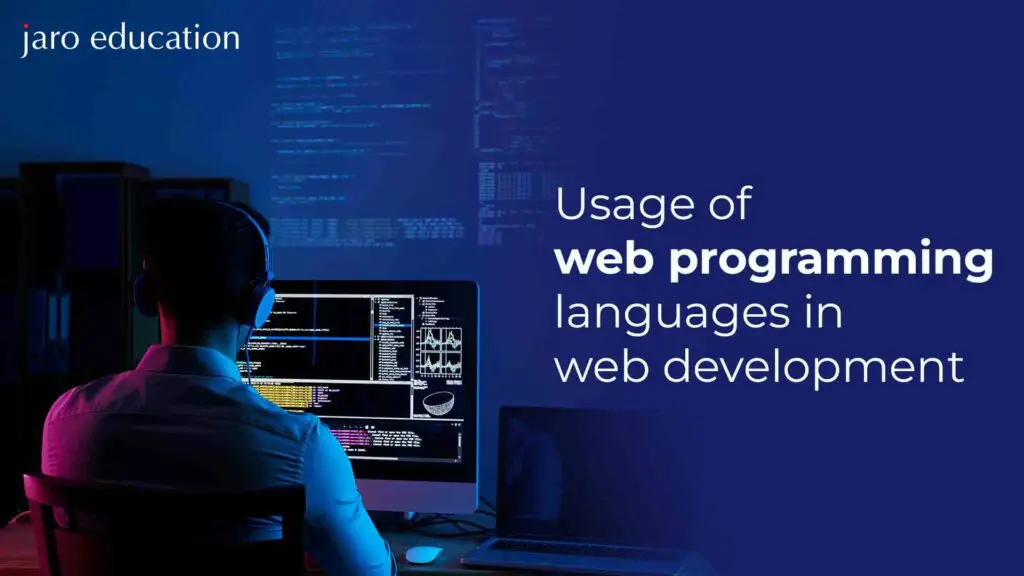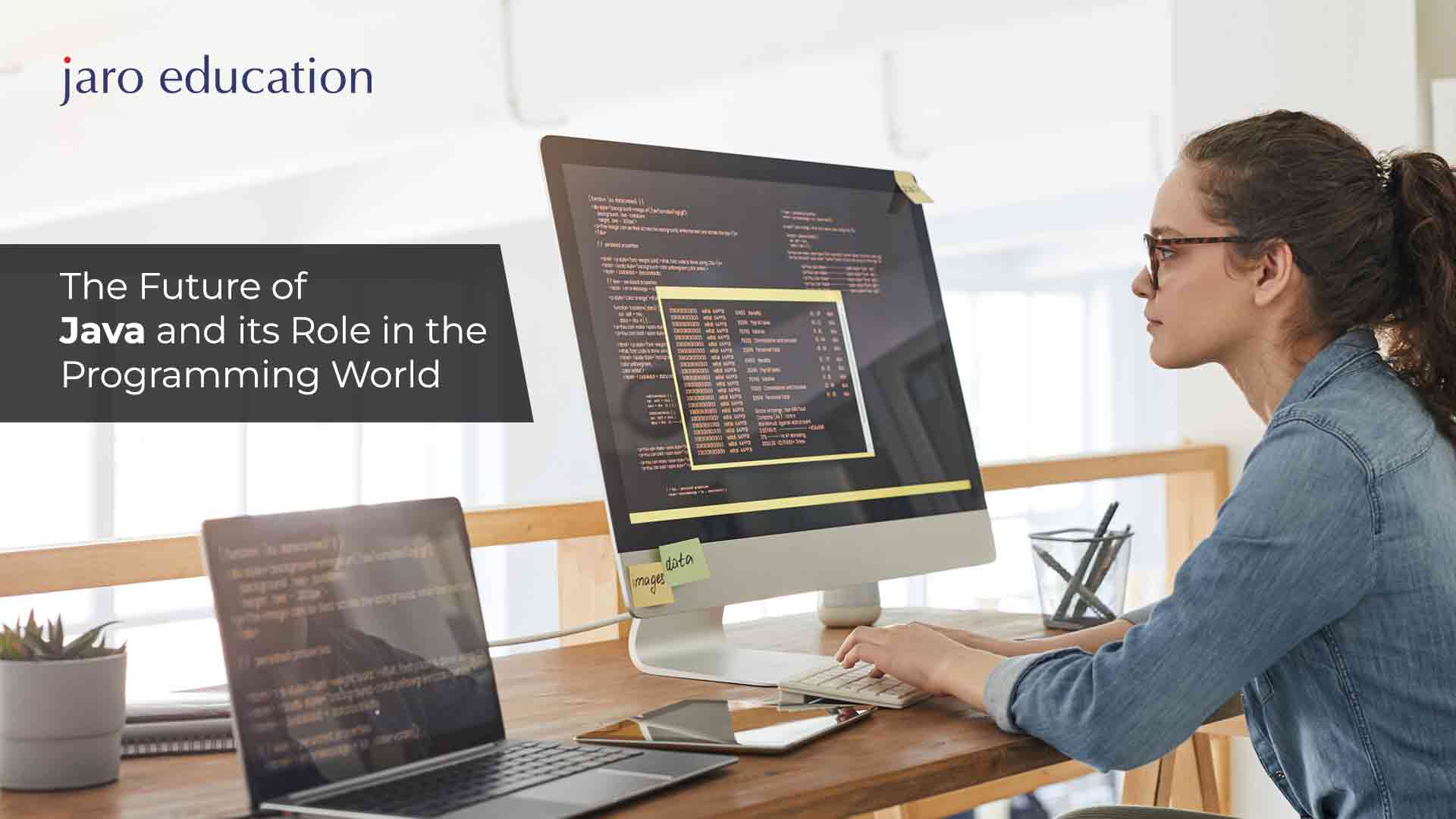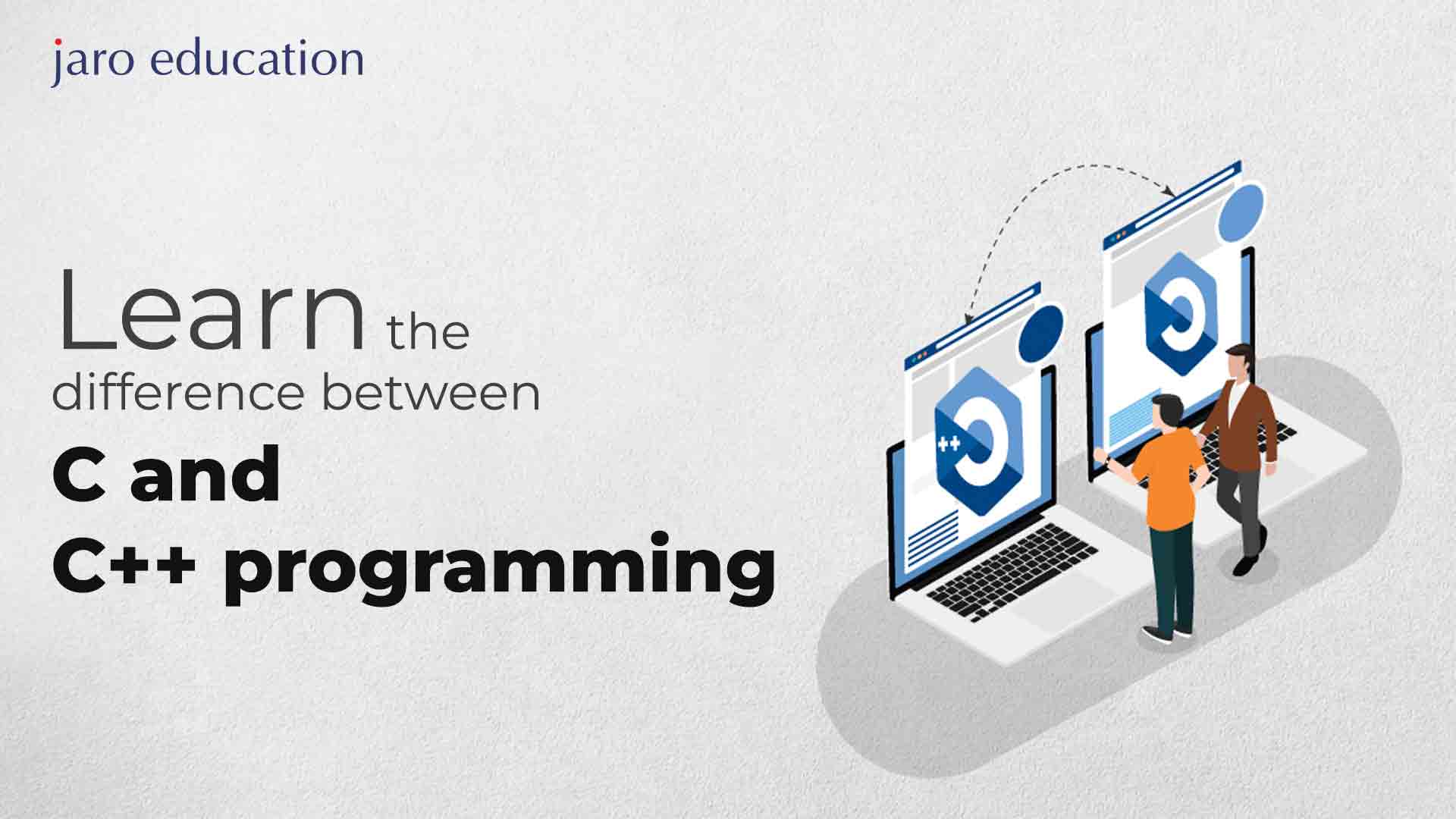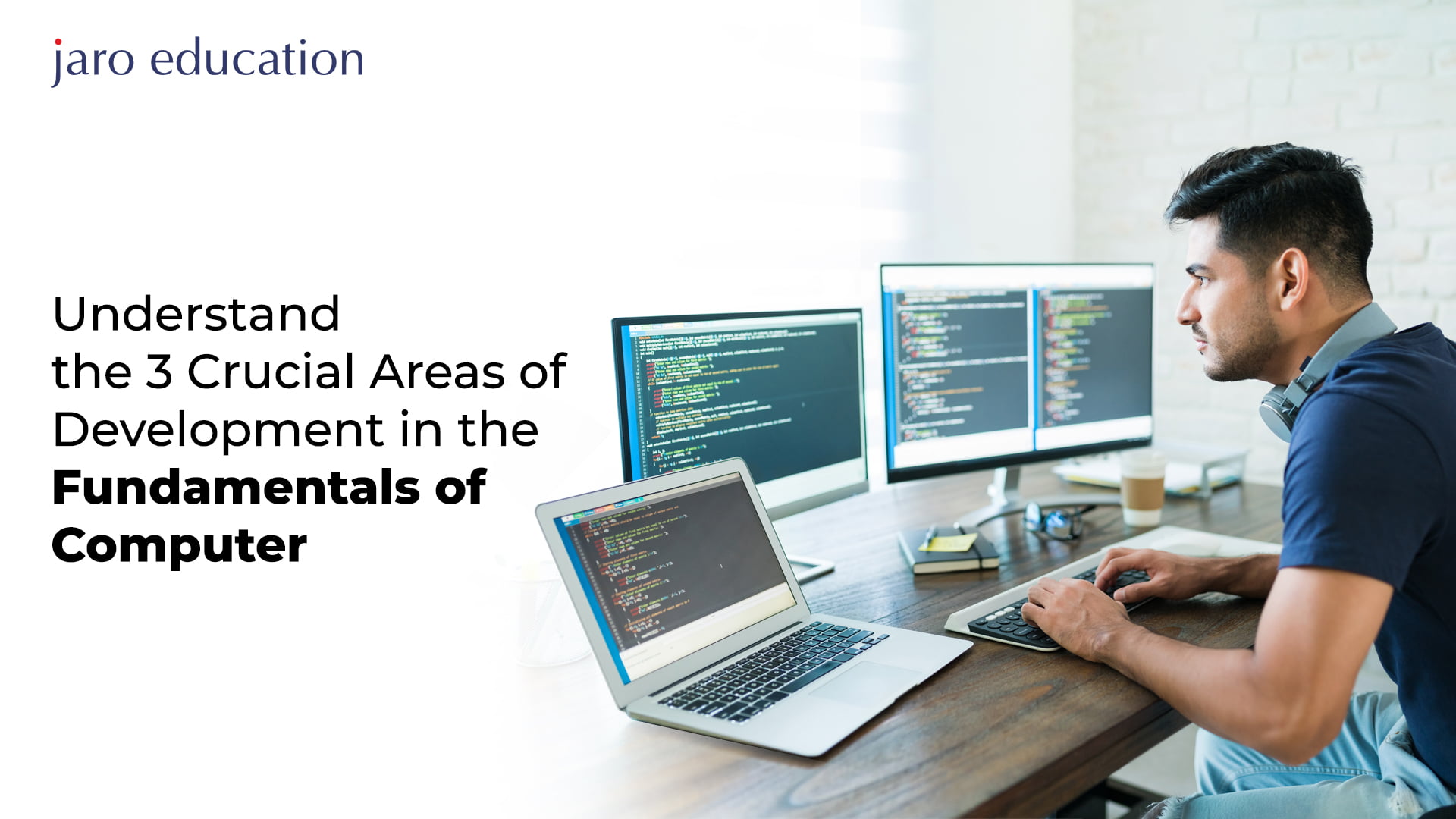Learn Python From Scratch in 2024: The Ultimate Guide
Table of Contents
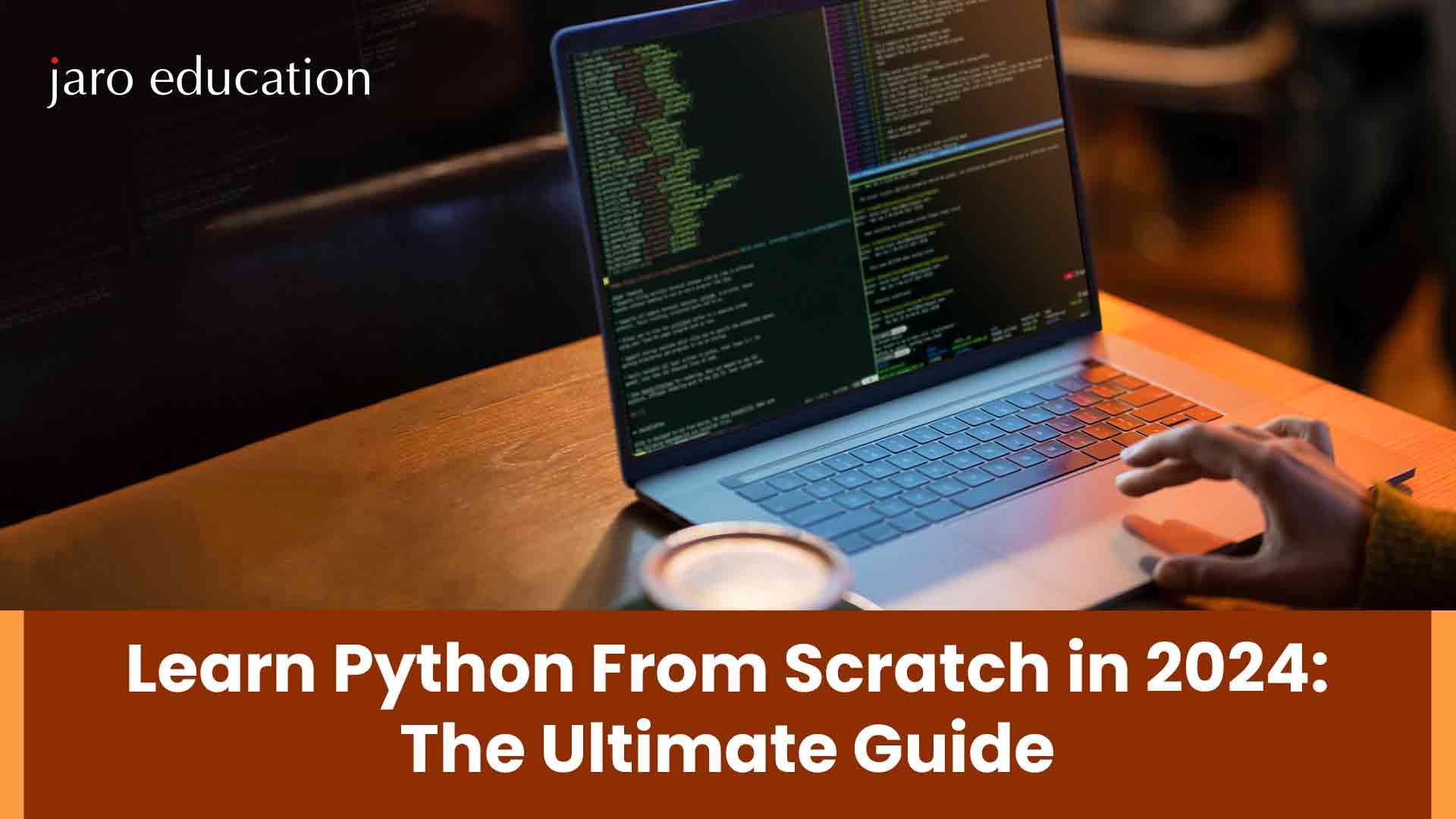
- jaro education
- 11, July 2024
- 10:00 am
In the dynamic field of technology, proficiency in a versatile programming language like Python opens doors to numerous opportunities. Now is an opportune time to embark on your journey of mastering Python, as the demand for skilled Python developers is projected to soar as we approach 2024. This thorough blog will provide you with professional knowledge and a detailed road map to Python coding for beginners, opening you to a world of opportunities in the fields of data science, software development, and more.
Understanding Python
Python, developed by Guido van Rossum in 1991, has become an inevitable part of modern programming. Known for its readability and versatility, it’s widely used in data analysis, AI, web development, and automation. Its easy-to-learn syntax, similar to English, allows developers to focus on problem-solving.
Why Learn Python, In 2024?
Python is still gaining traction in many sectors, which makes it a useful tool for professionals looking to secure their jobs in the future. To learn Python in 2024, consider the following strong arguments:
- Booming Job Market: Python is integral in web development, data science, machine learning, AI, and more. Businesses seek Python developers to drive innovation and address complex challenges, leading to high demand in the job market.
- Thriving Community: Python has a large and active developer community that promotes cooperation for learning, resource sharing, and problem-solving.
- Simplified Data Analysis: Python is now a standard tool for data analysis and visualization for its robust modules like NumPy, Pandas, and Matplotlib. Knowing Python’s data analysis features will provide you with a competitive advantage as data-driven decision-making becomes more and more important in many sectors.
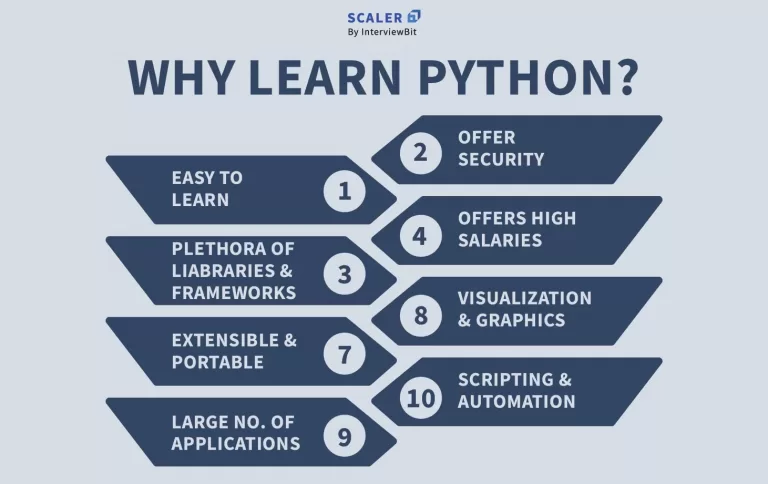
Scaler by Interview Bit*
Beginners Guide to Learning Python
Having established the need to learn Python, let’s get into a thorough, step-by-step tutorial to assist you in becoming an expert in this potent language from the beginning.
Configure Your Python Study Centre
When you learn Python, building up a supportive learning environment is crucial before you start. To begin, install Python on your machine by following the official operating system installation instructions. For writing, testing, and debugging your Python code using an easy-to-use interface, install an Integrated Development Environment (IDE) such as PyCharm, Visual Studio Code, or Spyder.
Get the Basics
Like every language, you need to learn Python fundamentally. Start by acquainting yourself with the fundamental operations, variables, data types, and syntax. The simplicity of Python will make this first step easy, enabling you to move swiftly on to more complex ideas.
As you study introductory Python coding, concentrate on practice with practical tasks and little projects. Your knowledge will be reinforced and a strong basis for the development of more sophisticated abilities will be laid by this practical method.
Visit Python Modules and Libraries
Python’s vast library and module collection offer pre-built functionality for a variety of jobs. Learn about widely used packages for numerical computation, data manipulation and analysis using Pandas, and data visualization with Matplotlib.
You’ll be able to solve practical issues more quickly and get useful experience interacting with Python’s extensive ecosystem by using these potent tools.
Object-Oriented Programming (OOP)
A core concept of Python, object-oriented programming (OOP) is necessary to write scalable, reusable, and maintainable programs. Discover classes, objects, inheritance, and polymorphism and how to use them in your Python applications.
In addition to improving your coding abilities, knowing OOP concepts will prepare you for more complex Python projects like framework and library development.
View Applications of Python
One of Python’s strongest suits is its adaptability; its uses are found in many industries. Look at fields that interest you and fit with your professional objectives. For example, if web programming interests you, look at frameworks like Flask or Django. If your interest lies in data science, explore libraries like Scikit-learn, TensorFlow and Keras.
Your knowledge of how Python may be used to address real-world issues will deepen and you will gain practical experience by concentrating on real-world applications.
Together, Learn from the Community
It is a difficult task to learn Python alone. Join online forums, show up for meetings, and take part in hackathons or coding challenges to interact with the active Python community. Your learning curve will be accelerated by this cooperative approach, which will expose you to several viewpoints, best practices, and cutting-edge methods.
To demonstrate your abilities and get worthwhile experience, think about starting your own projects or contributing to open-source Python projects.
Links to Quicken Your Python Education
There are many tools available to help you learn Python. Use these resources and sites to shape your knowledge, get experience coding, and keep informed about the most recent advancements in the Python environment.
Courses & Tutorials Online
Many websites provide thorough courses and tutorials designed for those who want to learn Python from the basic level. To help you practice, these sites often include interactive coding lessons, real-world projects, and an organized curriculum. Enrolling in these courses guarantees a comprehensive learning experience by providing you with access to coding challenges, properly chosen information, and sometimes even individualized feedback.
Books and eBooks
There’s value in reading books and eBooks on how to learn Python programming, even if internet resources are great. Many times, these written materials accommodate various learning styles with in-depth explanations, examples, and tasks. Among the strongly recommended books for novices are:
- Eric Matthes’ “Python Crash Course”
- Al Sweegart, “Automate the Boring Stuff with Python”
- Zed A Shaw’s book “Learn Python the Hard Way”
- “Python for Everybody” authored by Charles Severance
Interactive Coding Online Resources
Writing, running, and testing your Python code from within the platform makes interactive coding platforms a practical learning environment. Many times, these sites provide code recommendations, real-time comments, and access to a thriving learner and mentor community. Popular choices consist of:
- Codeskulptor
- Trinket
- Python Tutor
Python Discussion Forums
Getting involved in Python forums and communities may be a priceless tool for your to learn Python. These sites let you interact with other students, ask questions, exchange ideas, and keep up with the newest Python advancements. Here are a few well-known forums dedicated to Python learning.
- Python subsection of Reddit
- Database for Python Discord
- Python Meetups
- Stack Overflow (for queries particular to Python)
Python Real-World Applications
Understanding various real-world situations where Python excels is crucial to fully appreciating its strength and flexibility. Below are the areas where Python is widely used.
Web Production
Python’s ease of use, readability, and large library base has made it a popular option for web development. Robust tools are available for developing web applications, maintaining databases, and managing server-side logic from frameworks like Django and Flask. Because Python is so adaptable, RESTful APIs may be developed and seamless interaction with other systems and platforms can be possible.
Computer Science and Machine Learning
Data scientists and machine learning engineers turn to Python because of its vast collection of data analysis and machine learning packages, which include NumPy, Pandas, Scikit-learn, and TensorFlow. Through effective data processing, visualization, and the creation of complex machine learning models made possible by these libraries, companies can better understand their data and make well-informed decisions.
Science and Research Computing
Python’s versatility in handling intricate numerical computations, data analysis, and visualization jobs has won it over in the scientific world. Because of libraries like SciPy, Matplotlib, and Biopython, researchers in physics, biology, and astronomy may now more easily analyze and visualize data using Python.
Embedded Systems and the Internet of Things
Python’s flexibility reaches the field of embedded systems and the Internet of Things, where its portability and simplicity are advantages. Python libraries, such as RPi.Because GPIO makes hardware components communicable, developers may use Python to control embedded devices and build Internet of Things applications.
Investigating these practical uses as you learn Python will help you not only better grasp the language’s capabilities but also motivate you to take on more difficult tasks and contribute to creative solutions in a variety of fields.
Conclusion
Investing time in learning Python in 2024 is a strategic move for your future. Its versatility, user-friendly syntax, and extensive applicability across various industries provide a robust toolkit to thrive in the ever-evolving IT landscape.
Following the learning strategies in this blog will take you on a path that starts with understanding the basics and works your way up to more complex ideas while making use of Python’s extensive ecosystem of libraries and frameworks.
Enhance your career in data-driven decision-making with IIT Roorkee’s esteemed Post Graduate Certificate Program in Decision Making Using Data Science. The program offers a comprehensive curriculum, cloud lab access, and a certificate from IIT Roorkee. It also provides placement assistance, flexible learning, and expert faculty guidance, making it an ideal option for those looking to gain practical skills in decision-making using data science.







